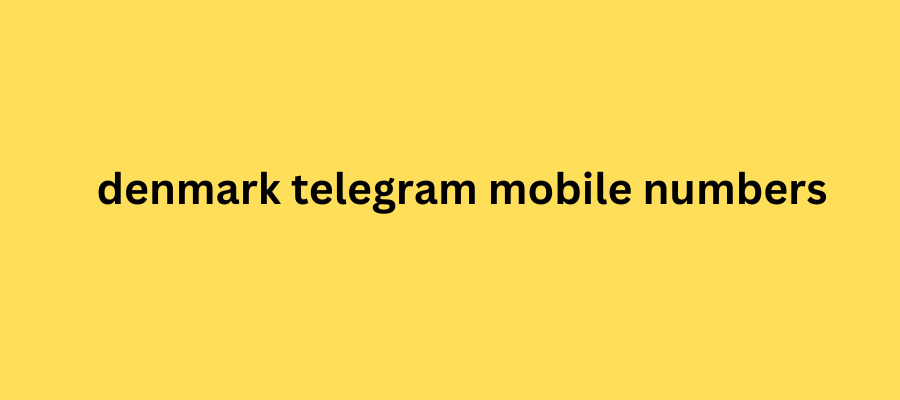Generative AI in marketing refers to the use of artificial intelligence (AI) technologies to enhance marketing efforts .Particularly using technologies that can create new content, insights, and solutions. These generative AI tools use advanced machine learning models to analyze large data sets and generate outputs . That mimic human reasoning and decision-making.
Using this feature
Marketers can automate, personalize, and innovate their marketing strategies in a variety of ways. For example, they can create personalized content for Denmark telegram mobile numbers individual consumers or display recommendations to marketing departments based on large amounts of customer data. Over the past decade, e-commerce companies and other organizations have deployed
AI for a variety of
marketing applications , including A/B testing of ads and automating major marketing campaigns such as email blasts. But as generative AI tools such as Chat GPT become more sophisticated, new technologies are set to disrupt digital marketing . These advances have already brought significant innovation to AI marketing in a short period of time.
Recently, automotive company
Carvana created 1.3 million unique AI-generated videos1 that were tailored to each customer journey. Spotify experimented with automatic podcast translation, potentially reaching new markets and target audiences. According to a survey conducted by IBM in partnership with Momentive.ai , 67% of chief
For marketing departments
generative AI can automate repetitive tasks, such as writing product descriptions or summarizing customer feedback, freeing up staff to perform more critical and valuable tasks. As AI models with deep learning capabilities become more familiar with a phone number is disconnected brand’s voice, products, and customers, their output improves, leading to a boost in overall performance.Innovations like these have significantly increased interest in using generative

